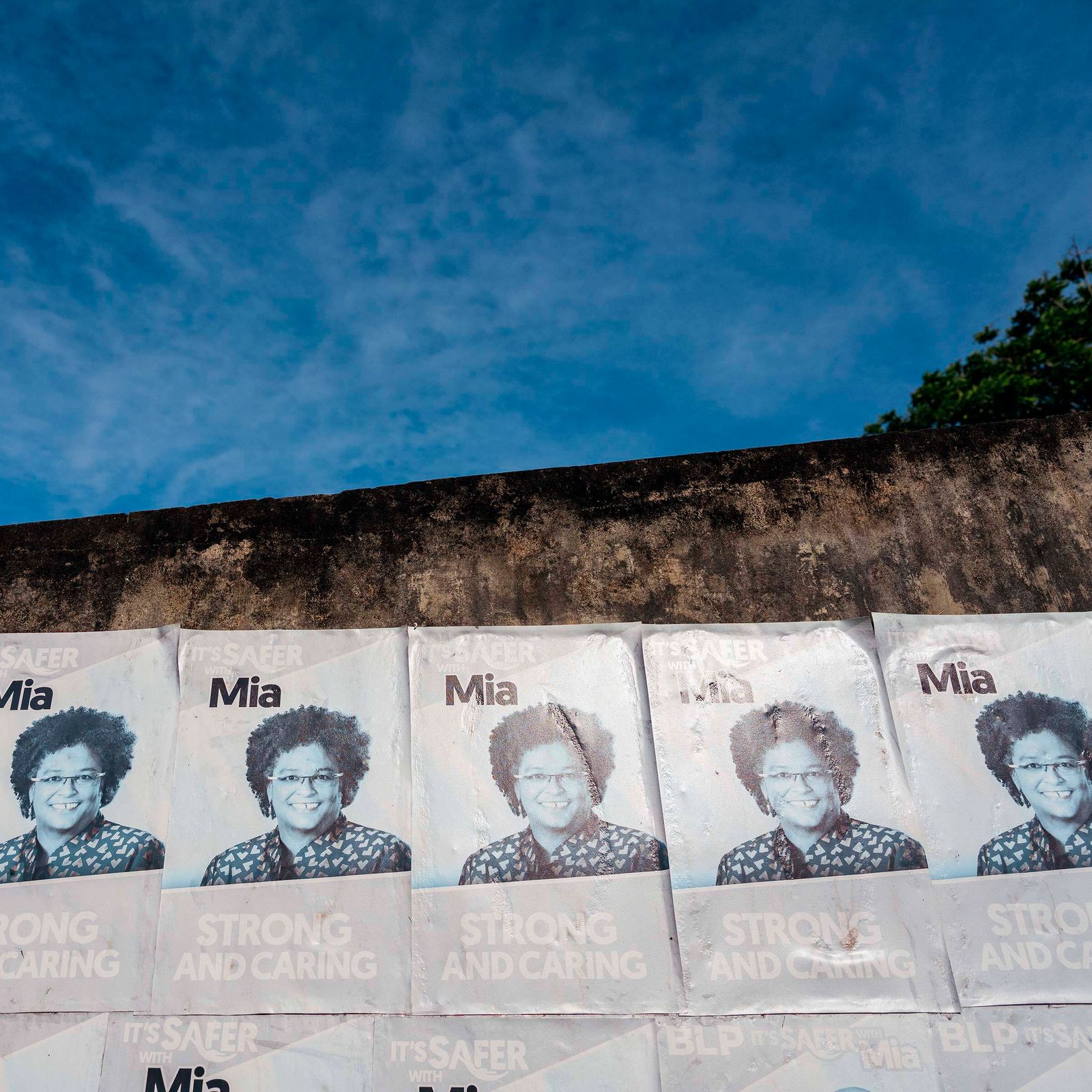by Abrahm Lustgarten
Across the Caribbean, soaring national debt is a hidden but decisive aspect of the climate crisis, hobbling countries’ ability to protect themselves from disaster. One island’s leader is fighting to find a way out.
Late on May 31, 2018, five days after she was sworn in as prime minister of Barbados, Mia Mottley and her top advisers gathered in the windowless anteroom of her administrative office in Bridgetown, the capital, for a call that could determine the fate of her island nation. The group settled into uncomfortable straight-backed chairs around a small mahogany table, staring at framed posters of Barbados’ windmills and sugar cane fields. Mottley, who was then 52, can appear mischievous in the moments before her bluntest declarations, but on this evening her steely side showed. She placed her personal cellphone on speaker and dialed a number in Washington for the International Monetary Fund. As arranged, Christine Lagarde, the managing director, answered.

Mottley, the first woman to lead Barbados, had been working toward this conversation for nearly two years, consulting expert financial and legal advisers to develop a plan that would restructure the country’s soaring debts in a way that would free up money to invest in Barbados’ economy. Then, nine months before voting day, that plan took on new urgency as two powerful hurricanes ripped through the Caribbean 12 days apart; they missed Barbados, but one of them obliterated nearby Dominica.
In Mottley’s view, that obliteration was “like a nuclear event.” It was increasingly clear that climate change would make all the projects that Barbados already could not afford more necessary — and more expensive. The storms revealed that even the most heroic economic planning could be laid to waste in a moment. It was already obvious that every climate crisis was an economic crisis; but going forward, she realized, every economic crisis would effectively be a climate crisis. For Mottley, this meant the money she needed the IMF to help her recoup wasn’t just for her people’s prosperity but for their survival.








CBD products present a at the ready and enjoyable feeling to experience the effects of this compound. These gummies fingers on in distinct flavors, potencies, and formulations, providing users with controlled dosing and long-lasting effects. Many consumers recognize them championing r ‘rest, stress relief. Degree, it’s important to waste them responsibly, as effects may ferry longer to recoil in compared to smoking or vaping. Forever voucher dosage guidelines and ensure compliance with local laws up front purchasing or consuming.